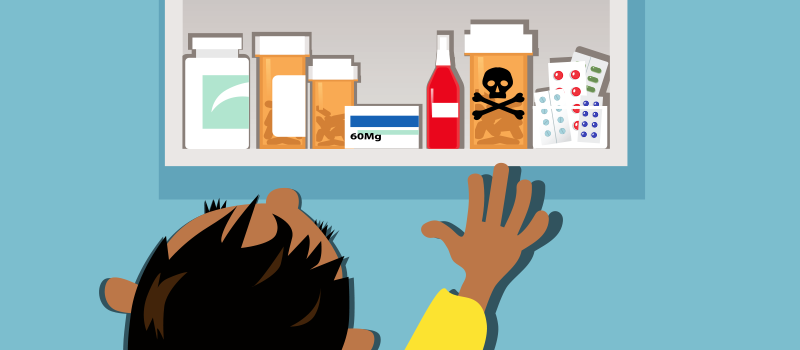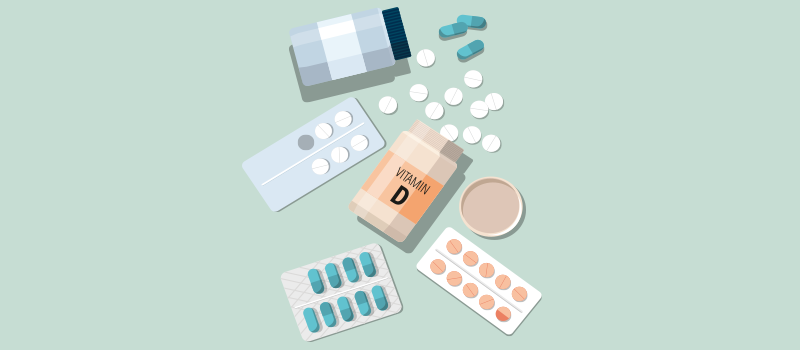Is Semaglutide Safe? What You Need to Know

Key Takeaways
-
Taking semaglutide can increase your risk of thyroid C-cell tumors, pancreatitis, low blood sugar, acute kidney injury, diabetic retinopathy, and increased heart rate, and can cause suicidal thoughts and behaviors.
-
Compounded versions of semaglutide and semaglutide products sold on the black market may contain ingredients that are not safe or effective. Always obtain semaglutide from state-licensed pharmacies located in the US.
-
Common side effects of semaglutide use include stomach pain, heartburn, burping, nausea, vomiting, diarrhea, and constipation. They usually improve once your body adjusts to the medicine.
Semaglutide is an FDA-approved injectable drug that is used to treat type 2 diabetes mellitus. It is also used for treating obesity. But semaglutide may not be safe for everyone. Please continue reading to learn more about some of the safety concerns associated with semaglutide use.
What are the safety concerns with semaglutide?
As with most drugs, the potential benefits of semaglutide come with certain risks. Some of the adverse events related to taking semaglutide include:
Side effects
Common side effects of semaglutide use include stomach pain, heartburn, burping, nausea, vomiting, diarrhea, and constipation. These side effects usually improve once your body adjusts to the medicine. Your healthcare provider will start you on a lower dose and gradually increase the dose to reduce side effects.
Thyroid cancer
Taking semaglutide can increase your risk of thyroid C-cell tumors, including medullary thyroid carcinoma, and multiple endocrine neoplasia type 2 (MEN 2). You should not take semaglutide if you have a personal or family history of thyroid cancer.
Acute pancreatitis
Semaglutide belongs to a group of drugs called GLP-1 receptor agonists. These drugs can increase the risk of developing pancreatitis (inflammation of the pancreas).
Gallbladder disease
Taking semaglutide can increase the risk of cholecystitis (gallbladder inflammation) and cholelithiasis (gallstones). Significant or rapid weight loss can further increase the risk of gallstones.
Low blood sugar
Semaglutide can cause low blood sugar levels, especially when used with other anti-diabetic drugs.
Kidney damage
There are reports of acute kidney injury and worsening chronic renal failure in people who were treated with semaglutide. Dehydration and volume depletion, for example, due to vomiting and diarrhea, can increase this risk. Tell your doctor right away if you notice decreased urine output while on semaglutide.
Allergic reactions
In a small number of people, semaglutide can cause serious allergic reactions, including anaphylaxis (a sudden, severe allergic reaction with throat closing) and angioedema (swelling).
Diabetic retinopathy complications
Rapid improvement in blood glucose on semaglutide can lead to a temporary worsening in diabetic retinopathy (eye complications).
Increased heart rate
Some people develop an elevated resting heart rate on semaglutide.
Suicidal behavior
Using semaglutide for weight loss can cause changes in mood and behavior, including worsening depression and suicidal thoughts and behavior. Semaglutide should not be used in patients with a history of suicidal attempts or active suicidal ideation.
What is the dark side of semaglutide?
Risks associated with compounded drugs
The FDA permits compounding pharmacies to sell compounded forms of drugs that are in short supply. However, the FDA does not review compounded drugs for quality, safety, or effectiveness.
Semaglutide, marketed as both Ozempic and Wegovy, is on the FDA’s drug shortages list.
The FDA has received adverse event reports related to use of compounded versions of semaglutide. Compounded semaglutide may contain semaglutide salts (these salt forms of semaglutide are different from the base form present in FDA-approved drugs). Because of these risks, you should only use a compounded drug if the approved generic versions or brand names of a drug are not available.
Risks associated with illegally marketed semaglutide
The FDA has also raised concerns about semaglutide products sold on the black market. These formulations may not contain the same active ingredients as FDA-approved semaglutide products. They may contain salt formulations like semaglutide sodium or semaglutide acetate, which are not safe or effective. Or they may contain different active ingredients, wrong doses of the same active ingredient, or other harmful ingredients.
What not to do on semaglutide?
-
Do not purchase semaglutide from unlicensed pharmacies. Always obtain semaglutide from state-licensed pharmacies located in the US. Make sure you take this medication under the supervision of licensed health care professionals.
-
Do not start other medications while on semaglutide without checking with your doctor. Interactions between semaglutide and your other drugs can result in potentially dangerous adverse effects.
-
Do not inject semaglutide if the solution appears colored, cloudy, or has visible solid particles floating in it.
-
Do not share semaglutide pens with others or reuse needles. Ask your doctor or pharmacist to show you how to dispose of used semaglutide pens properly in a puncture-resistant container.
-
Do not freeze semaglutide. Store unused semaglutide pens in the refrigerator. You can store the pen in use for 56 days at room temperature or in a refrigerator.
What is semaglutide used to treat?
Type 2 diabetes mellitus
Diabetes is a chronic condition that puts you at a high risk of heart disease, heart attack, stroke, and other serious health problems. Semaglutide is used, along with diet and exercise, to lower blood sugar levels in people with type 2 diabetes mellitus. It is not used to treat type 1 diabetes or diabetic ketoacidosis.
Semaglutide is a GLP-1 receptor agonist. It mimics a natural hormone called GLP-1 and helps with blood sugar control by activating the GLP-1 receptor. This stimulates insulin secretion by the pancreas. Insulin is a hormone that helps to keep blood glucose levels in check. Semaglutide is marketed under the brand name Ozempic (injectable form) and Rybelsus (oral semaglutide) for this purpose.
Chronic weight management
Semaglutide is also approved for weight loss by the U.S. Food and Drug Administration (FDA). It and other anti-obesity medications in its class slow the movement of food from the stomach. This increases fullness, decreases appetite, and reduces caloric intake, thereby leading to modest weight loss.
Semaglutide is approved for use in obese individuals with a body mass index (BMI) of 30 kg/m2 or higher or overweight individuals with a BMI of 27 kg/m2 or higher and at least one weight-related condition such as high blood pressure, high blood sugar, or high cholesterol. It is sold under the brand name Wegovy for this purpose. Check out our blog to learn how Wegovy works for weight loss.
What do I need to know before starting semaglutide?
Before starting semaglutide medications (Ozempic or Wegovy), you should know:
-
Semaglutide injections are not a magic bullet. This drug works best, both for blood sugar control and chronic weight management, when coupled with healthy lifestyle changes such as a reduced-calorie diet and increased exercise.
-
Semaglutide injections come in the form of prefilled dosing pens to be injected subcutaneously (under the skin surface) once a week. You will need to learn how to inject the medicine, have someone give you the injections, or go to a healthcare provider’s office to receive semaglutide.
-
Semaglutide can interact with other medicines and increase the risk of serious adverse effects. Give your doctor a complete list of your other drugs to prevent potentially dangerous drug interactions.
-
Also, give your doctor a detailed medical history before starting semaglutide. This medication may not be safe for people with certain medical conditions.
-
You may need to change your semaglutide dose or temporarily stop taking this medication in certain situations that can result in changes in blood glucose levels, for example, changes in diet and exercise, infections, illnesses, injuries, or emotional stress.
Learn more about Ozempic vs Wegovy for weight loss.
Save on Your Medication with BuzzRx!
Manage your medication costs with BuzzRx coupons. Here are direct links to substantial savings for each medication:
Remember, these coupons are widely accepted at over 60,000 pharmacies, including major chains like CVS, Walgreens, and Rite Aid. Just present your coupon at the pharmacy to ensure you're getting the best possible price.
References:












SOCIAL